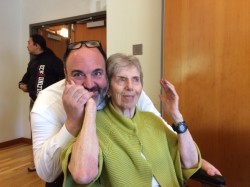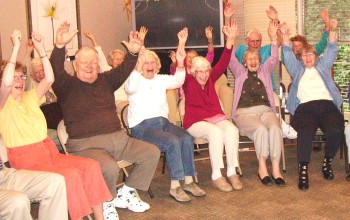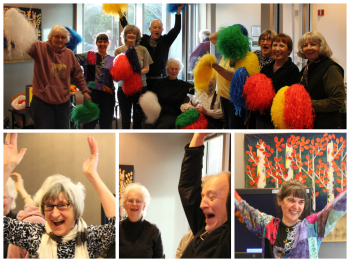Let Us Be a Resource for You
With a Little Help is dedicated to helping our community by offering the best in professional and supportive in-home care to your loved ones. We also want to be a resource when you are looking to learn more about their condition. While live, in-person educational...





 Andrew Cohen, of
Andrew Cohen, of  Laughing at Ida Culver[/caption] You may have noticed, on
Laughing at Ida Culver[/caption] You may have noticed, on  Verde and class at TheHub[/caption] Laughter Yoga is fun and playful yet, as Teresa Verde, a pioneer, of Laughter Yoga in Seattle and Certified Laughter teacher since 2001, explains, "This is a vigorous exercise. It is basically a "laughter workout." Is Laughter Yoga good for elders? I asked. Yes. Laughter increases energy by oxygenating the system and triggering the "happiness factor." Keys to a positive experience? Being open to new things, having some level of stamina, and participating in a group that embraces the idea. Caregivers? Laughter Yoga is also good for you. It relieves stress, can be practiced in the moment, and promotes wellness.
Verde and class at TheHub[/caption] Laughter Yoga is fun and playful yet, as Teresa Verde, a pioneer, of Laughter Yoga in Seattle and Certified Laughter teacher since 2001, explains, "This is a vigorous exercise. It is basically a "laughter workout." Is Laughter Yoga good for elders? I asked. Yes. Laughter increases energy by oxygenating the system and triggering the "happiness factor." Keys to a positive experience? Being open to new things, having some level of stamina, and participating in a group that embraces the idea. Caregivers? Laughter Yoga is also good for you. It relieves stress, can be practiced in the moment, and promotes wellness.